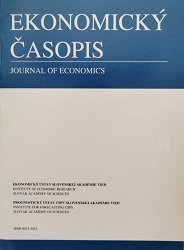Behavioural Biases and Stock Market Reaction: Evidence from Six Post-communist Countries
Behavioural Biases and Stock Market Reaction: Evidence from Six Post-communist Countries
Author(s): Ruxandra TrifanSubject(s): Business Economy / Management, Post-Communist Transformation, Financial Markets
Published by: SAV - Slovenská akadémia vied - Ekonomický ústav SAV a Prognostický ústav SAV
Keywords: behavioural biases; trading volume; stock market behaviour;
Summary/Abstract: This article investigates the relationship between several behavioural biases and stock market reactions. We analyse six post-communist countries (Romania, Poland, Hungary, Slovenia, the Slovak Republic and the Czech Republic) for the January 2012 – September 2019’ time period. We test for any effect of different measures used in behavioural finance literature (investors’ optimism, respectively pessimism, spontaneous behaviour and the anchoring effect) on stock market’s trading volume. Our empirical findings suggest that judgement and emotions are a significant driver of the stock market, not all market players acting rationally when investing. Investors are susceptible to behavioural biases which influence significantly their decision making process. Polish investors are pessimistic individuals, while in Romania, Hungary and the Czech Republic the optimistic sentiment exercises a greater influence on the trading activity. Spontaneous behaviour characterizes the Romanian, Hungarian and Slovak investors. Lastly, the anchoring effect is found significant in 5 out of 6 countries analysed, no effect being observed in the Czech Republic.
Journal: Ekonomický časopis
- Issue Year: 68/2020
- Issue No: 08
- Page Range: 811-826
- Page Count: 16
- Language: English

